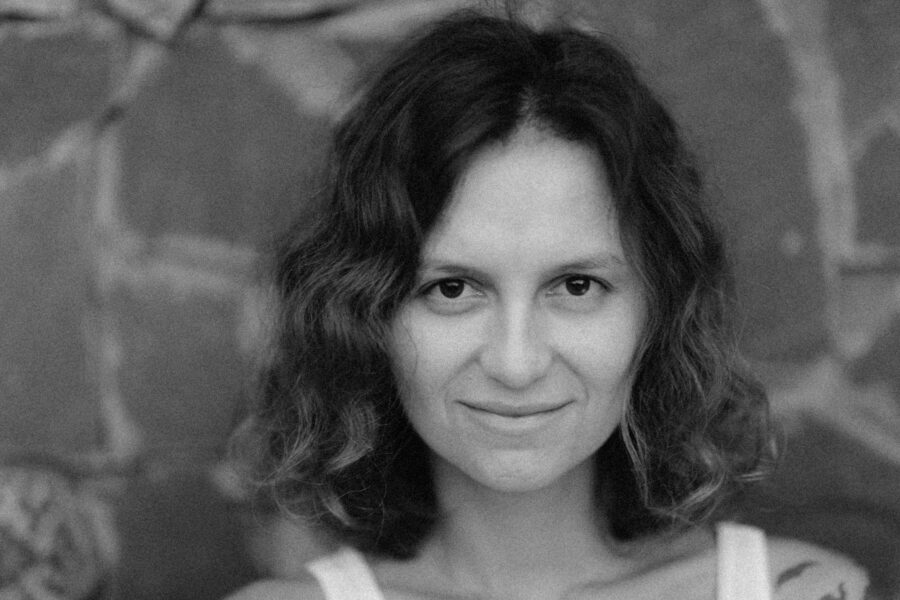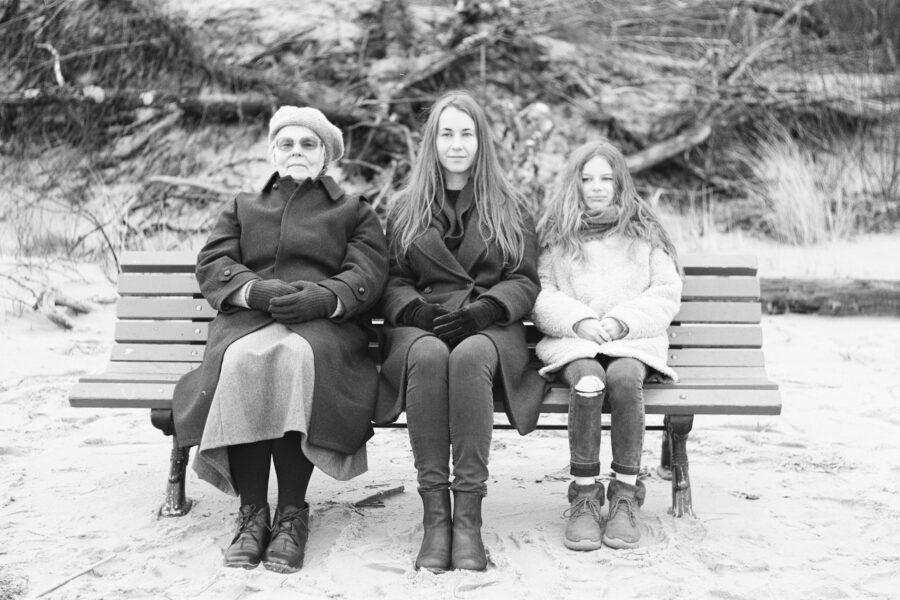For decades, men’s mental health was barely acknowledged in public conversations.

If it came up, it was often through tragic statistics, sombre awareness campaigns, or clinical warnings. Rarely was it discussed as something everyday, human, and changeable, and almost never was it something men were encouraged to talk about themselves.
However, that’s changing. Slowly, but meaningfully, more men are speaking up about how they feel. They’re challenging long-held ideas about what it means to cope, to be strong, and to ask for help. The change isn’t flashy or loud, but it’s happening—and it matters more than ever because silence has been costing lives.
What’s emerging now isn’t just a social trend. It’s a cultural reset, driven by everything from personal stories to public policy changes, and from quiet check-ins between mates to the increasing number of men showing up at therapy appointments. It’s a change that’s not only long overdue, it’s lifesaving.
The old rules are breaking down.

For generations, men were handed a very narrow idea of masculinity. Strength meant silence. Emotions were either expressed as anger or not at all. Sadness, fear, grief, or anxiety? Those were seen as weaknesses—things to be hidden, managed alone, or ignored until they exploded.
These expectations didn’t just show up in media or pop culture, they were everywhere. In schools, in families, in locker rooms, at the pub. The message was clear: don’t be soft, don’t show pain, and definitely don’t talk about it. But that script is finally showing its cracks.
Younger generations of men are increasingly unwilling to follow those rules.

Many are asking: why should strength mean suppression? Why should carrying pain in silence be a badge of honour? They’re redefining what resilience looks like — not as emotional avoidance, but as emotional awareness.
Even older men, often those who’ve lived through breakdowns, loss, or health scares, are starting to speak up too. Not to perform vulnerability, but because they’ve lived long enough to realise that silence didn’t serve them. Their stories add weight to the chnage: proof that it’s never too late to start talking.
Social media is giving people language and connection.

One of the biggest drivers of this change is the internet. Platforms like TikTok, Instagram, YouTube and Reddit are filled with content about mental health. From quick explainers on anxiety to first-person stories of recovery, men are not only consuming this content—they’re sharing their own.
This is giving language to experiences that once felt impossible to explain. A man who’s felt low for months might now recognise it as burnout or depression because he saw a post that described it perfectly. Another might realise that the tight chest, irritability, and racing thoughts he’s been dealing with are actually anxiety, not just something to “power through.”
This kind of visibility creates what many didn’t have growing up: a sense of recognition. When men see people like them expressing feelings, getting therapy, and still being seen as capable and respected, it starts to change what feels possible. It opens up new ways to be, not just privately, but publicly too.
There’s also been a rise in male creators focusing specifically on emotional wellbeing, creating safe corners of the internet where men can talk, ask questions, and find encouragement without judgement. These digital communities are filling a gap that institutions have long ignored.
High-profile men are setting a new tone.
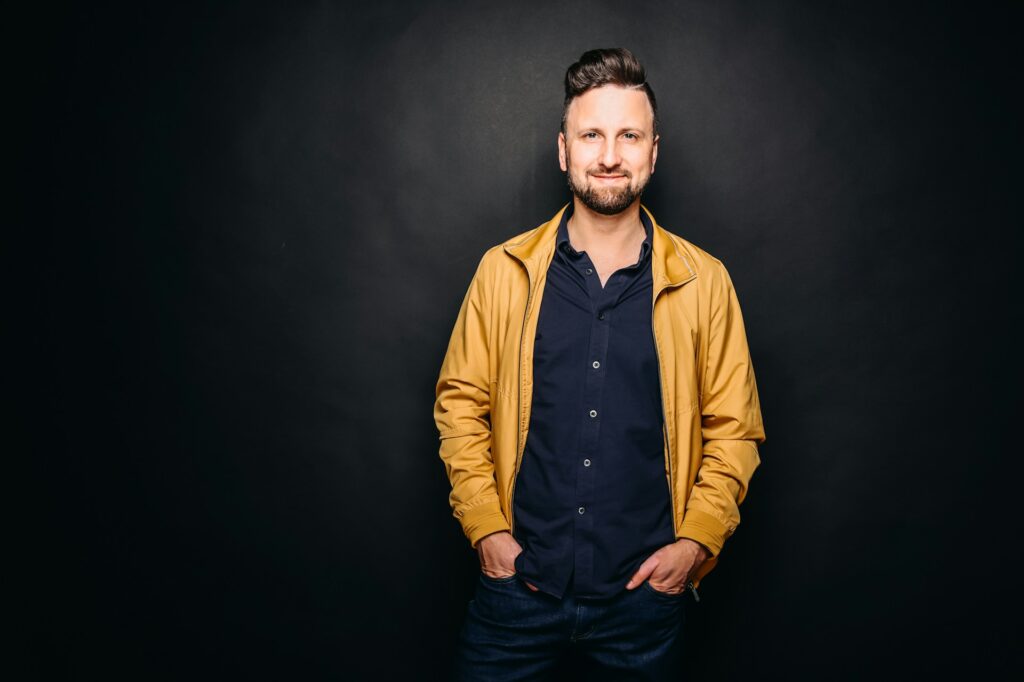
The influence of well-known men speaking up can’t be underestimated. When athletes, actors, musicians, and public figures open up about their mental health, it creates space for others to do the same.
In recent years, sports stars like Tyson Fury and Prince Harry have spoken openly about depression, trauma, and seeking therapy. Musicians like Stormzy and Sam Fender have publicly discussed anxiety and emotional overwhelm. Their openness doesn’t fix everything, but it sends a message that strength and vulnerability can co-exist.
It’s particularly powerful when the men who share these stories don’t frame them as dramatic turning points, but as part of life. Therapy isn’t just for when things fall apart; it’s something that helps keep them together. And when emotional literacy is modelled by men who are otherwise admired for their resilience or creativity, it challenges all the tired old assumptions.
More male celebrities are now including mental health support as part of their advocacy, and charities are leaning into this visibility to reach wider audiences. The change isn’t just in the message—it’s in the messengers.
The statistics still speak volumes.
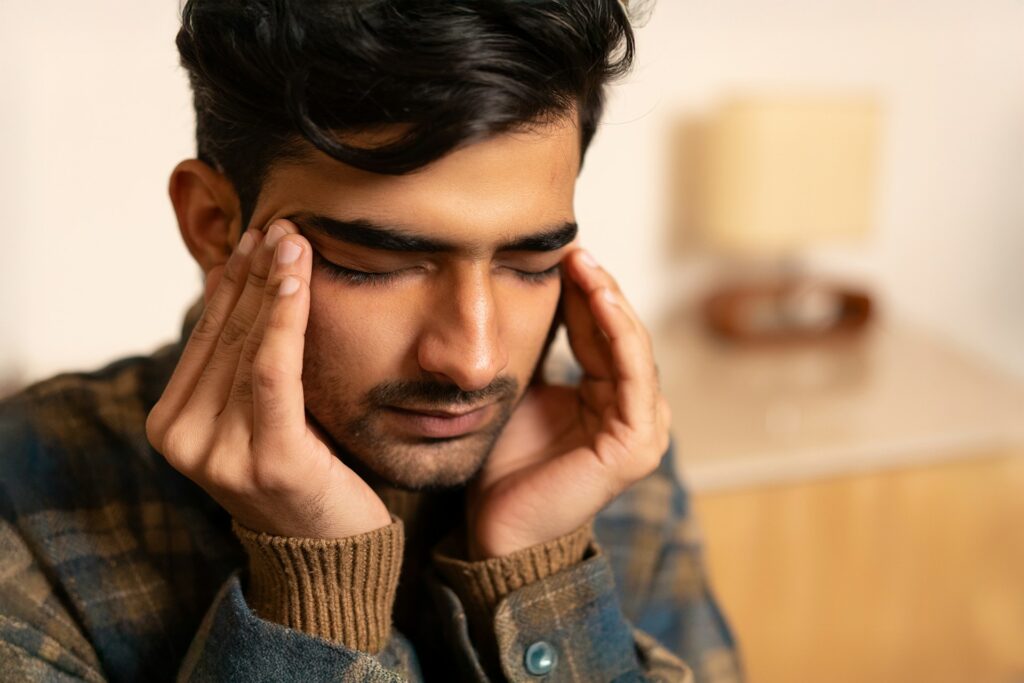
Despite the progress, the numbers are a stark reminder of why change is still so necessary. Men remain significantly less likely than women to access psychological therapies. In England, only around 36% of NHS talking therapy referrals are for men, despite men making up nearly half the population.
At the same time, men are around three times more likely to die by suicide. According to the Office for National Statistics, suicide remains the single biggest killer of men under 50 in the UK. That gap isn’t about biology. It’s about stigma, isolation, cultural pressure, and the lingering belief that asking for help is somehow a failure.
These statistics aren’t abstract. Behind each number is a person, often someone who didn’t feel able to speak up, or didn’t know how to get support. The numbers alone won’t change culture, but they should keep the urgency of this conversation front and centre.
Therapy is becoming more accessible, and less stigmatised.
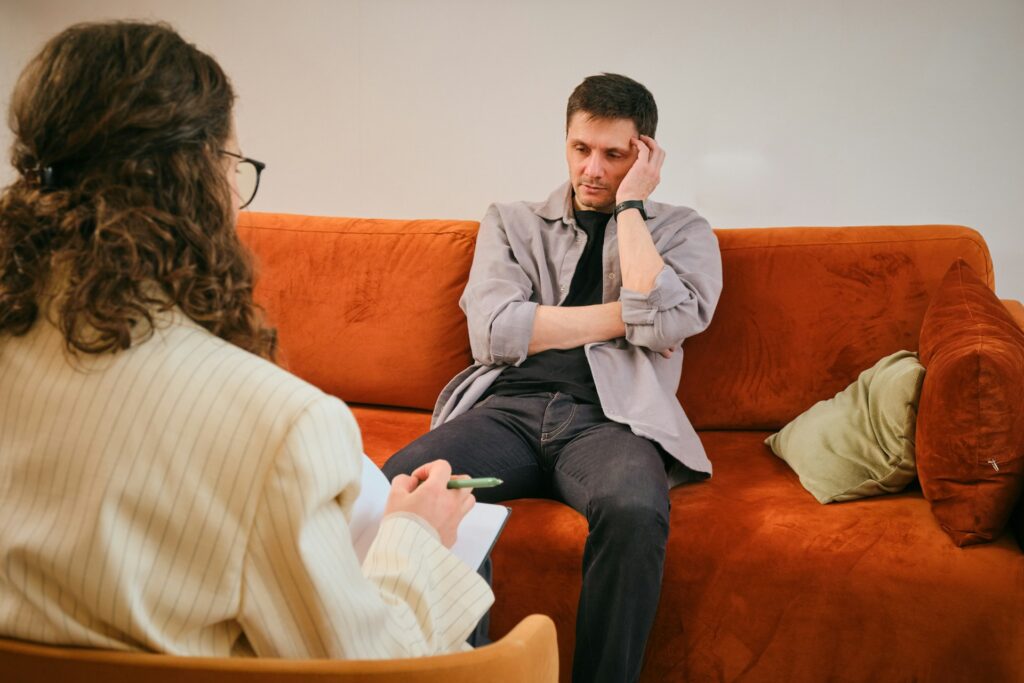
Therapy used to carry heavy assumptions: that it was only for people in crisis, that it was self-indulgent, that it wasn’t for men. But those ideas are slowly breaking down. More men are seeing therapy as a practical tool, a way to learn about themselves, improve relationships, and manage life with less pressure.
And therapy itself is changing too. There’s more cultural awareness, more male therapists, more tailored approaches that acknowledge how men are socialised to think about emotion. It’s not about talking for the sake of it; it’s about understanding how your experiences shape you, and what you want to do with that knowledge.
Even workplaces are beginning to get on board.

Employee Assistance Programmes, mental health training, and open conversations among colleagues are becoming more common, especially in male-dominated industries like construction, tech, and transport. Some companies are even bringing in mental health champions and anonymous helplines to make access easier.
Therapy apps and online platforms are also breaking down barriers. With the rise of digital mental health services, men no longer need to walk into a GP surgery or sit in a waiting room—they can connect with someone from their phone. For those who still feel unsure, that can be a vital first step.
Male friendships are getting deeper.

Another quiet but powerful change is happening in male friendships. There’s more emotional depth, more check-ins, more room to say, “I’m struggling.” It’s no longer unusual for male friends to talk about stress, burnout, or therapy over a pint. That move is vital. While romantic relationships and family dynamics matter, friendships often serve as the first and safest place where men can open up. These day-to-day conversations might not be dramatic, but they build trust, and they save lives.
We’re also seeing more community groups and peer circles designed specifically for men, from walking groups to men’s sheds to online forums, where conversation can happen in a way that feels natural and grounded. These spaces remind men they don’t have to be the exception to speak up. They just have to be willing.
It’s not about fixing men—it’s about freeing them.

This change isn’t about telling every man he must open up. It’s about making sure that if and when he wants to, he can. Without fear of ridicule. Without being dismissed. Without being told to “man up.” It’s about saying that masculinity can hold space for complexity—that you can be dependable, loving, ambitious, and still need help sometimes. That vulnerability isn’t weakness, it’s part of being fully human.
When men are given permission to stop performing and start feeling, everything shifts. Their relationships improve. Their stress levels drop. They sleep better. They parent differently. They live longer. Maybe most importantly, they realise they’re not alone. That other men are going through the same things. That the old version of masculinity isn’t the only option anymore.
The change may be quiet, but it’s happening. With every conversation, every shared post, every friend who checks in instead of brushing off, something powerful builds. A new kind of strength, built not on silence, but on connection. A strength that allows men to feel like themselves fully, honestly, and without apology.

